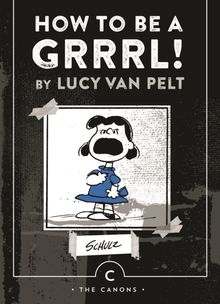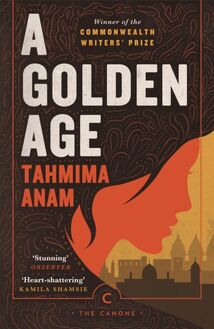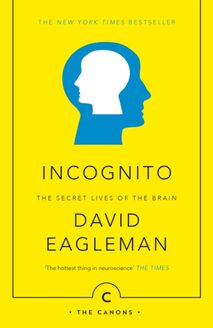Its Colours They Are Fine , livre ebook
133
pages
English
Ebooks
2018
Vous pourrez modifier la taille du texte de cet ouvrage
Obtenez un accès à la bibliothèque pour le consulter en ligne En savoir plus
Découvre YouScribe en t'inscrivant gratuitement
Découvre YouScribe en t'inscrivant gratuitement
133
pages
English
Ebooks
2018
Vous pourrez modifier la taille du texte de cet ouvrage
Obtenez un accès à la bibliothèque pour le consulter en ligne En savoir plus
Publié par
Date de parution
02 août 2018
Nombre de lectures
0
EAN13
9781786892980
Langue
English
Publié par
Date de parution
02 août 2018
Nombre de lectures
0
EAN13
9781786892980
Langue
English
This Canons edition published in Great Britain,
the USA and Canada in 2018 by Canongate Books Ltd,
14 High Street, Edinburgh EH1 1TE
First published in Great Britain in 1977
by William Collins Sons & Co Ltd
Distributed in the USA by Publishers Group West and in
Canada by Publishers Group Canada
canongate.co.uk
This digital edition first published in 2018 by Canongate Books
Copyright © Alan Spence, 1977
Introduction copyright © Janice Galloway, 2018
The moral right of the author has been asserted
Every effort has been made to trace copyright holders and obtain their permission for the use of copyright material. The publisher apologises for any errors or omissions and would be grateful if notified of any corrections that should be incorporated in future reprints or editions of this book.
British Library Cataloguing-in-Publication Data
A catalogue record for this book is available on request from the British Library
ISBN 978 1 78689 297 3 eISBN 978 1 78689 298 0
Typeset in Palatino by Palimpsest Book Production Ltd, Falkirk, Stirlingshire
Contents
Zen and the Art of Alan Spence by Janice Galloway
ONE
Tinsel
Sheaves
The Ferry
Gypsy
Silver in the Lamplight
TWO
Its Colours They Are Fine
Brilliant
The Rain Dance
The Palace
Greensleeves
THREE
Changes
Auld Lang Syne
Blue
About the Author
By the Same Author
To Nityananda and Shantishri
(Tom and Maureen McGrath)
Zen and the Art of Alan Spence
I first heard Alan Spence in a cafe in Sauchiehall Street in Glasgow called, auspiciously enough, the Third Eye Centre. It sounds other-worldly and, in some way, was. More definitely, however, it wasn’t. It held salads in giant spoonfuls and coffee served by doughty locals with little time for small-talk (the place was always lively, noisy and full) and the seating and tables were minimalist. All of which, of course, made it a haven for the bookish, the lonely, the karmic, readers of free newspapers and political pamphlets, students of all stripes and arty sorts (like me) and anybody up for a play, a performance or a reading in the theatre at the back.
Founded by Tom McGrath, the Third Eye – ‘a shrine to the avant-garde’ according to the Guardian – put on performances, readings and eye-popping indefinables by an astonishing range of people, including Allen Ginsberg, John Byrne, Kathy Acker, Annie Griffin, Edwin Morgan, Ken Currie, Whoopi Goldberg, James Kelman, and a fabulously educational female stripper whose name, to my shame, I forget. Its ambition was to give experience – mind expansion if you like – and what curious loner who loved books, music and surprises wouldn’t have turned up every weekend, all the way from Ayrshire, to gain it.
This Third Eye, then, was where I first heard Alan Spence. I had read his play The Sailmaker , but was unprepared for the calm half dark of the spotlight and the solitary poet in the corner, rolling out his own collection, Glasgow Zen .
That words from one mouth can go into the ears of others and alter their thinking is not a given, but it certainly happens. I recall Alan’s intoning of ‘Joshu’s Mu’, a Japanese-inspired meditation upon questions, which I followed with my mouth open. That playful could be serious, that the cleanly stated could be also ripe with different shades of meaning and possibilities, was something I knew in theory, but to experience it in these surrounds was a kind of magic. The word Mu itself (meaning nothing, no thing, emptiness) and variations of Alan’s twin set of Mu poems still pop into my head whenever they want. I don’t have to prompt them; they just live there now.
What is the square root of minus one?
How many angels on the head of a pin?
Why should a dog, a horse, a rat have life
and thou no breath at all?
Mu.
To acknowledge poetry as something that makes life better, by which I mean clearer, is to say nothing unusual. Sentences and even single words may infer a question, a moment, that is capable of shifting how we think, which in turn may even shift our lives. A big idea offered in fragments has particular power. And those fragments, by dint of hard-won concision, stick. Alan is a writer who, in the succinctness of his telling and his gentle wit, stuck with me.
Every day, we store lines of songs, phrases, family names for everyday objects, fragments of loved books and messages in birthday cards without memorising them purposely: as curious animals, we crave more insight than our own. Words on the radio, lines of songs and things overheard on buses we collect in much the way a rook collects shiny objects: to build on, to have handy. In case. To stockpile wisdoms is a human essential. They can, quite literally, change our lives, even save them. And the fact of Alan’s being there, a calmly reflective voice in what was, at times, a largely angry male culture, signified. It was a kind of permission. A means by which any reader, of whatever background, gender or tribal affiliation, might find words to sink, expand and mean more than they showed on the surface. Brevity, in the hands of someone who understands its possibilities, expands the mind. There are few greater gifts.
His first published book – the one you hold in your hands now – first appeared in 1977. It’s about the Glasgow, the city, the author grew up in: from the place itself to its working people, the lives of Glasgow families and how notionally ‘ordinary lives’ can shift according to prevailing culture over even a short time. A nineteenth-century sectarian Ulster-Scots folk-song, ‘The Sash’, that has played its own part in violence and religious bigotry in central Scotland echoes in the book’s title subtly enough to be open to more than one meaning or sectarian affiliation. The stories collected in this volume do indeed reflect the effect of sectarianism and alcohol (and the caged-in lives of generations of women). But this fragment of the title’s most notorious inference is only a tiny part of what there is to see. Of course not. With the lightest of touches, these stories present the far wider picture.
Between these pages are the overlooked, the wide-eyed and hopeful, and clear flashes of wonder. Beauty and significance, no matter how indefinable, show their colours too. A wider world and ways of being in it open themselves to view. Some characters turn to poetry instead of alcohol, some to mind-expansion of other types, including as much Glasgow-inspired as Zen-inspired transcendence.
Which is where the Third Eye, equally the ‘eye of insight’ in the forehead of the god Shiva and the subtle power of poetry, prose and thought (as exemplified by the Sauchiehall Street haven that opened the eyes of so many) take us in this book.
In ‘Tinsel’, a six-year-old sees an other-worldly beauty on the Christmas tree he and his mother decorate on Christmas Eve, and the child alone glimpses another self, unreachable, in the window’s reflection. In ‘Sheaves’, an older boy can tell the time (time to go to Sunday School means half past one) by his mother’s ‘shouting him up’ from play. ‘The Rain Dance’, some years on, shows a young groom-to-be getting drunk the night before his wedding as his mother waits up, worrying, only to be disappointed when he does appear (‘Ah mean it wis the boay’s last night a freedom before e pits is heid in the auld noose,’ his father, with breathtaking insensitivity, explains). Further along the timeline still, a young married man admires a beautiful Chinese brushwork illustration in a book and finds the appearance of Japanese landscapes, only half-mockingly, in the patterns of damp on his ceiling.
What culture might be moves on. It touches our lives whether we invite it or not, offering fresh connections between the obvious and the half-glimpsed, the commonplace and the ethereal. Its Colours They Are Fine describes a time of enormous social and cultural change in a resolutely working-class city. Human happiness, folly, fleetingness and hope are its core.
Janice Galloway, May 2018
ONE
Tinsel
The swing-doors of the steamie had windows in them but even when he stood on tiptoe he couldn’t reach up to see out. If he held the doors open, the people queuing complained about the cold and anyway the strain would make his arms ache. So he had to be content to peer out through the narrow slit between the doors, pressing his forehead against the brass handplate. He could see part of the street and the grey buildings opposite, everything covered in snow. He tried to see more by moving a little sideways, but the gap wasn’t wide enough. He could smell the woodandpaint of the door and the clean bleachy smell from the washhouse. His eye began to sting from the draught so he closed it tight and put his other eye to the slit, but he had to jump back quickly as a woman with a pramful of washing crashed open the doors. When the doors had stopped swinging and settled back into place he noticed that the brass plate was covered with fingermarks. He wanted to see it smooth and shiny so he breathed up on it, clouding it with his breath, and rubbed it with his sleeve. But he only managed to smear the greasy marks across the plate, leaving it streaky and there was still a cluster of prints near the top that he couldn’t reach at all.
He went over and sat down on the long wooden bench against the wall. His feet didn’t quite reach the ground and he sat swinging his legs. It felt as if his mother had been in the washhouse for hours.
Waiting.
People passed in and out. The queue was just opposite the bench. They queued to come in and wash their clothes or to have a hot bath or a swim. The way to the swimming baths was through an iron turnstile, like the ones at Ibrox Park. When his father took him to the match he lifted him over the turnstile so he didn’t have to pay.
Unfastening his trenchcoat, he rummaged about in his trouser pocket and brought out a toy Red Indian without a head, a pencil rubber, a badge with a racing car, a yellow wax crayon a














